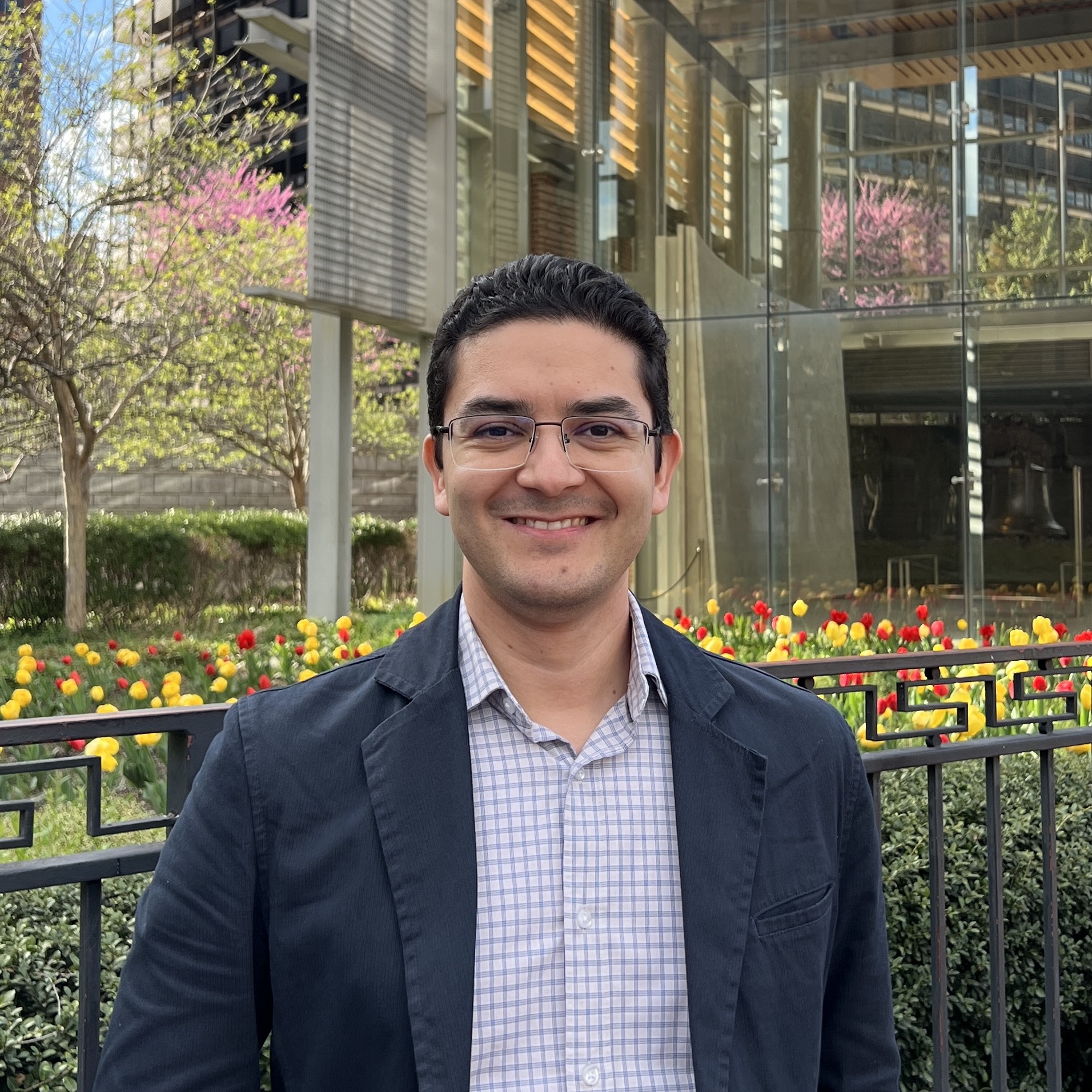Why We’re Different
Students are involved in multidisciplinary grant-funded research projects.
Students obtain experiences with data from multiple areas of educational research.
Students choose personalized pathways across methods, statistics, psychometrics, evaluation, and AI.
Student Testimonials

Wallace Pinto Junior | Fall 21, Ph.D.
I chose UF’s REM program for its strong training in Quantitative Methods, approachable faculty, and an assistantship that covered my living costs as an international student. UF has exceeded my expectations. I came for traditional psychometrics but gained valuable exposure to Machine Learning, AI, and career insights through the REM Colloquia. I received the Graduate School Funding Award (GSFA) from the College of Education as a Graduate Assistant (GA) under Dr. Jinnie Shin’s supervision. My research focuses on developing automated scoring systems for online assessments using large language models (LLMs) and analyzing explainable artificial intelligence methods to improve these scoring models.
Advice to prospective students: Establish strong foundations in research design, validity, reliability, and fairness, for your contributions to interdisciplinary teams. Also, pursue opportunities to learn about Machine Learning and Artificial Intelligence, as Educational Measurement intersects with Computer Science.

Pauline Aguinalde | Spr 23, Ph.D.
Since undergrad, I’ve been involved in research, first as a research assistant with Dr. Curran and later with Dr. Snyder’s lab. Dr. Snyder’s advice- ‘being a student is the best time to make mistakes’-has had a lasting impact on me, pushing me to embrace challenges and grow, with the support of faculty along the way. The REM program offers a great balance of technical and educational focus. My experience at UF has been incredibly rewarding, with supportive people making me proud to be an EduGator. I served as an instructor/ TA under Dr. Mawdsley from Spring to Fall 2023. Since Spring 2024, I’ve been Dr. Shin’s GRA, focusing on an automated job task analysis for engineering education and researching AI tutors’ relationship with students.
Advice to prospective students: Don’t be afraid to reach out to people! More often than not, they are happy to answer your questions and even willing to meet up with you to discuss their experience. I sent many emails asking for advice and information to multiple faculty and students in the college when I was trying to find the best path for me.

Lingchen Kong | Fall 22, Ph.D.
My major reason for choosing the REM program at UF was my advisor, Dr. Shin, whose research interests align closely with mine, particularly in interdisciplinary studies that combine machine learning, natural language processing (NLP), and educational assessment. Additionally, the geolocation of UF played a role in my decision; after experiencing several chilly winters in the Northeast, I was eager for a change, and Gainesville’s proximity to the coast and milder climate appealed to me. Pursuing a PhD at the College of Education has allowed me to fully dedicate myself to research. This fulfilling journey has reinforced my decision to pursue a research-oriented career in an environment where curiosity thrives.
Advice to prospective students: Break long-term goals into smaller tasks and tackle them one at a time. Stay committed to your main goal and adapt your methods when challenges arise. Classroom learning has limits; read widely, practice often, and ask questions. Prioritize your health by eating well, getting enough sleep, and staying active.

Amber Hatch | Spr 23, MAE
UF’s REM program is home to several well-known, nationally recognized methodologists, including authors of seminal texts and some new faces well-versed in cutting-edge computational methods. When I joined the REM program, the faculty was immediately supportive of me, even before they had a chance to get to know me. They were invested in my professional development beyond the classroom, always extending opportunities to grow and to experience new things. My knowledge of cutting-edge methods, which have not fully diffused to the broader academic community, has made my contributions to collaborative projects invaluable at times. Overall, my experience in the REM program has been transformative, equipping me with the tools I need to succeed in my research endeavors.
Advice to prospective students: The faculty is there to support you. They are all very resourceful people and future students would benefit from welcoming their advice and building relationships with them.
Alumni Testimonials
My Ph.D. study in the REM program is one of my most valuable and memorable life experiences. This program is well suited for people who want to pursue their career in educational research, statistics and methodology, as well as for people like me who are interested in psychometrics and measurement.
My favorite aspects of the REM program were the quantitative curriculum and the people. The curriculum shapes your thinking in a way that allows you to constantly think outside of the box. Also, it affords you the knowledge to answer real research questions using statistical methods.
Kate Miller
All courses and my dissertation in REM program are very helpful for me to work here and also those knowledge and experiences made me to obtain a current job. I really want to express my appreciation to the REM faculty members. They supported me not only academically but also spiritually.
